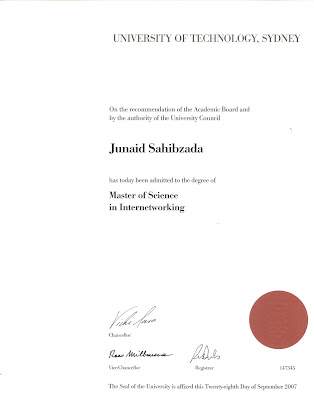The immigration department has undertaken a review of the student visa Assessment Levels (ALs). This review resulted in changes to the Assessment Levels for 52 countries in one or more education sectors.
The changes are specified in legislative instruments that are available on the Commonwealth of Australia Law website.
See: ComLaw
The new Assessment Levels will be in effect from 1 September 2008. Student visa applications lodged on or after 1 September 2008 will be subject to these new Assessment Levels.
As of 1 September 2008 Form 1219i Overseas Student Program - Assessment Levels will reflect the new Assessment Levels.
See: Student Assessment Levels - 1 September 2008 (184KB PDF file)
Note: The two errors previously identified in the legislative instruments specifying Assessment Levels have been corrected. All Assessment Level changes will be in effect from 1 September 2008.
Assessment Levels and the Student Visa Program
A record number of more than 278,000 student visas were granted in the 2007-08 program year. This represents more than 21 per cent growth in the student visa program in one year.
The department considers each of these student visa applications on their individual merits. Assessment Levels (ALs) streamline this process, allowing the department to deliver fast and efficient service to our clients while maintaining the integrity of Australia’s immigration program.
Transparency in visa requirements and consistent decisions are a pivotal part of the student visa program. In 2007-08, visas were granted to students from over 190 different countries. Assessment Levels, as an objective measure of immigration risk for each of these student groups, are a key tool in determining visa requirements and enable consistency in decisions across this diverse range of clients.
There are five Assessment Levels in the student visa program. They serve to align student visa requirements to the immigration risk posed by applicants from a particular country studying in a particular education sector. Assessment Level 1 represents the lowest immigration risk and Assessment Level 5 the highest. The higher the Assessment Level, the greater the evidence an applicant is required to demonstrate to support their claims for the grant of a student visa.
How are Assessment Levels determined?
Each country, across each education sector, is assigned an Assessment Level which is based on the calculated immigration risk posed by students from that country studying in that education sector.
To determine the Assessment Level of a particular country and education sector, the department examines that group’s compliance with their visa conditions and other indicators of their immigration risk in the previous year.
Where these statistical indicators show that a group has a higher level of immigration risk over a sustained period, the department responds to this trend by raising the Assessment Level of that group. In effect, this requires applicants to submit a higher level of evidence to support their claims that they wish to study in Australia.
Where a group’s indicators demonstrate that they tend to abide by their visa conditions, these lower immigration risk groups have their Assessment Level lowered. This streamlines the visa process by reducing the level of evidence that these applicants need to submit to support their claims for a student visa.
The department regularly undertakes a comprehensive risk assessment of the entire student visa caseload and reviews the Assessment Levels to ensure that they align to the immigration risk of groups.
What Assessment Level am I?
The passport you hold and the education sector of your principal course will determine the Assessment Level of your visa application.
To identify the Assessment Level for your visa application, match your passport type with the visa subclass for the education sector of your principal course.
Form 1219i contains a list of the current Assessment Levels for all passports and education sectors. Your Assessment Level is the one in effect for your passport and visa subclass on the date that you lodged a valid application with the department.
See: Information form 1219i Overseas Student Program - Assessment Levels (58KB PDF file)
If your passport is not listed in the table on Form 1219i you will be subject to Assessment Level 3. If you are sponsored by AusAID or Defence and are applying for a subclass 576 – AusAID/Defence student visa you will be subject to Assessment Level 2.
What Assessment Level are my family members?
Your family members may be eligible to apply for a visa to accompany you to Australia. Family members are subject to the same Assessment Level as the student, regardless of the type of passport the family member holds.
See: Bringing Family
Junaid
Migration Agent Registration Number: 0964018




